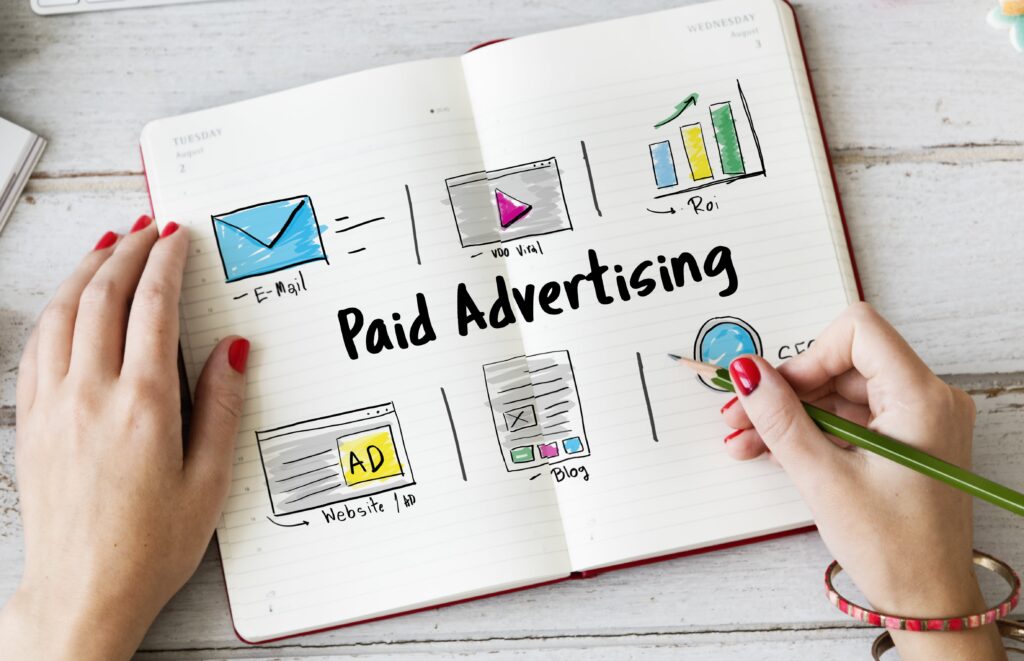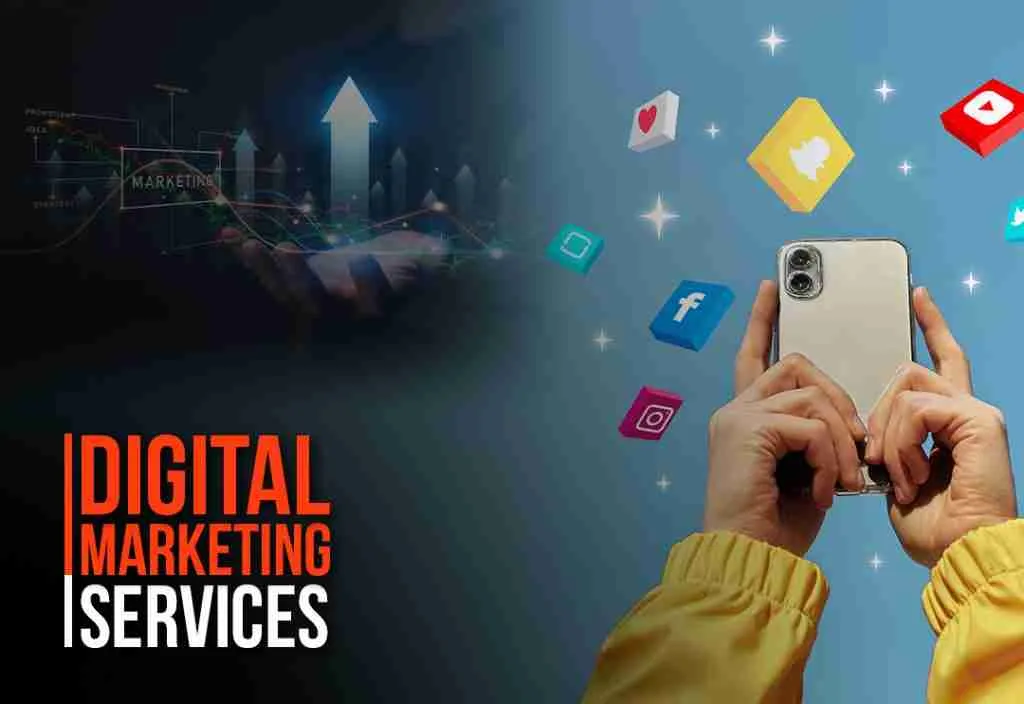Ads don’t just need to be seen; they need to sell. That’s where ad management services come into play. From building performance-driven campaigns to optimizing every click, ad management is the engine behind brands that dominate search results and social feeds.
It’s not just about launching ads, it’s about launching them with intent, precision, and data-backed strategy. Whether it’s Google Ads, Meta campaigns, or LinkedIn B2B targeting, effective ad management ensures your message lands in front of the right audience at the perfect moment.
Businesses that combine ad management with complementary solutions like SEO, digital marketing, graphic design, logo design, and image optimization don’t just attract traffic; they create brand ecosystems that convert visitors into loyal customers.
If your ads aren’t generating leads or your ROAS graph looks flatter than your morning coffee, it’s time to stop guessing and start managing with strategy.
What Are Advertising Management Services?
Ad management services are professional solutions that handle every aspect of your paid advertising campaigns across platforms like Google Ads, Facebook, Instagram, LinkedIn, YouTube, and more.
From keyword research to audience segmentation, ad creation, A/B testing, and budget optimization, these services ensure your ads reach the right people at the right time, delivering measurable ROI.
Simply put, while you focus on running your business, ad management experts make sure your money is being spent wisely to drive the best results.
What Are the Key Benefits of the Best Ad Management Services?
- Precise Targeting: Reach the people who actually want your products or services, based on demographics, interests, behavior, and search intent.
- Time Efficiency: Managing campaigns, tracking performance, and optimizing ads daily can be time-consuming. Outsourcing it saves hours every week.
- Optimization on Autopilot: Algorithms shift daily. A good ad management team tracks those changes, adjusts bids, swaps underperforming ads, and keeps your campaign ahead of the curve.
- Better Budget Control: Think of ad managers as financial strategists for your campaigns. They know where to increase spending and where to pull the plug. Every dollar goes where it actually performs.
- Access to Advanced Tools: Agencies use pro-level tools for keyword research, performance tracking, and A/B testing that most small businesses can’t afford. You’re not just paying for services, you’re buying technology and expertise.
- Faster Scaling: Once a campaign starts performing, scaling becomes smooth. A seasoned ad management team knows exactly how to expand reach without losing profitability.
- Peace of Mind: You focus on building your business while the experts obsess over CTRs, ROAS, and conversion rates. Less stress, more growth. Fact is, according to Google, optimized ad campaigns can improve conversions by up to 200%, while reducing wasted ad spend by nearly 30%. That’s the difference between guessing and strategizing.
Benefits of Outsourcing Ad Management Services for Your Business
Running ads in-house sounds great until you realize it’s draining time, money, and mental bandwidth faster than it’s driving conversions. Outsourcing your advertising management services isn’t just a smart move; it’s a performance upgrade for your business. Here’s how:
- Expertise Without the Learning Curve: Ad platforms change algorithms, bidding strategies, and targeting rules like they’re switching moods. When you outsource, you’re hiring experts who live and breathe campaigns daily. No wasted budget experimenting, no guessing games, just data-driven strategy from day one.
- Laser-Focused Targeting That Actually Converts: Professional ad managers don’t just “boost posts.” They analyze demographics, interests, search intent, and buyer behavior to make sure your ads reach the people who are ready to buy. Every click counts, and none are wasted.
- 24/7 Optimization Without the Headache: Outsourced teams monitor, test, and tweak campaigns around the clock. While you sleep, they’re refining bids, testing creatives, and improving performance. It’s like having a digital pit crew always tuning your campaigns for maximum speed and precision.
- Access to Pro-Level Tools and Technology: From analytics dashboards to A/B testing platforms, agencies invest in premium tools most businesses can’t justify in-house. Outsourcing gives you access to that entire toolkit without paying the steep subscription bills.
- Time Freedom for What Actually Matters: Your internal team should focus on strategy, product, and customer experience, not obsessing over CPCs or CTRs. Outsourcing frees your time to grow the business while professionals handle the performance grind.
- Consistency Across Platforms: Managing Google, Facebook, Instagram, and LinkedIn ads together isn’t a walk in the park. Outsourced teams maintain consistency in tone, targeting, and creative, ensuring your brand looks sharp everywhere it shows up.
Drawbacks of Outsourcing Ad Management Services
Outsourcing ad management buys expertise, but it isn’t a magic wand. Know the downsides up front so you don’t hand over your budget and your brand and get ghosted.
- Less Hands-On Control: When an outside team runs campaigns, you trade day-to-day control for expertise. That’s fine if the agency communicates, it’s a problem if they make big moves without your input. Expect strategy proposals and approvals. If you don’t get them, you’re on autopilot.
- Misaligned Strategy or Brand Voice: Agencies can be excellent at clicks and poor at nuance. An ad that converts but sounds off-brand will cost you trust and long-term value. Make sure creative direction aligns with your brand guidelines from day one.
- Variable Quality Between Providers: Not all agencies are equal. Some pump out performance; others sell smoke and dashboards. You’ll encounter firms with outdated tactics, cookie-cutter creatives, or exaggerated case studies. Due diligence is non-negotiable.
- Communication Gaps: Poor reporting cadence, unclear KPIs, or delayed responses kill momentum. If you can’t get timely performance data or transparent billing details, expect surprises and not the good kind.

Why Choose Outsourcing Buddy for Ad Management Services?
If you’re tired of paying for “marketing experiments,” it’s time to partner with a team that actually delivers results, not excuses. That’s where Outsourcing Buddy steps in. We don’t just run ads; we engineer outcomes. From strategy to execution, every campaign we manage is designed to bring one thing: performance that scales.
- ROI Isn’t a Buzzword Here, It’s the Standard: We treat your ad budget like it’s our own. Every dollar is tracked, tested, and optimized until it performs. No random spending. No blind bidding. Just data-driven, measurable growth.
- Full-Funnel Ad Strategy: Our team doesn’t just push traffic; we build conversion-focused funnels that take users from awareness to action. Whether it’s Google, Meta, LinkedIn, or YouTube, we connect every touchpoint to your end goal.
- Certified Professionals + Proven Experience: Our ad managers are certified by top platforms and have years of experience optimizing campaigns for startups, e-commerce brands, and B2B companies. We know what works and what burns money, and we stay on the right side of that line.
- Transparent Communication & Real Reports: You’ll never wonder where your money went. We share clear, visual reports with live data dashboards, weekly updates, and strategic insights, not vanity metrics.
- Cross-Platform Mastery: From paid search to social ads, display to retargeting, we build unified ad ecosystems that deliver consistent results and maximize visibility across every platform your customers use.
- Conversion-Focused Creative Team: Our ad creatives don’t just look good, they sell. The design, copy, and CTAs are built around psychology and performance. We craft campaigns that make people click, and keep clicking.
- Scalable, Flexible, and Outsourced Right: Whether you’re a growing brand or an established enterprise, our model adapts to your needs. You can scale campaigns without hiring in-house teams or dealing with management overhead.
- End-to-End Digital Growth Partner: We don’t stop at ads. Outsourcing Buddy also offers SMM services, content marketing, video marketing services, image optimization, and e-commerce outsourcing services, helping you build visibility both organically and through paid strategy.
How to Find a Reliable Ad Management Company for Successful Growth?
This is the recruitment process you can’t wing. Treat it like hiring a VP of growth, because that’s basically what you’re doing.
- Define Clear and Goals: So, first things first, before you talk to anyone, just set your goals, define them for your business. Write down the outcomes you want, like lead volume, ROAS, CPL, app installs, or brand fit. Also, include baseline performance and budget ranges. If you can’t define success, neither can the agency.
- Shortlist Candidates with Proper Intent: Okay, next comes shortlisting. So, look at referrals, agency directories, niche communities, and LinkedIn. Pick agencies that advertise the channels you need, like Google, Meta, LinkedIn, programmatic, etc. Therefore, don’t waste time on generalists who can touch everything but master nothing.
- Vet Credibility: Then, just ask for recent case studies showing measurable impact, client references you can actually call, and platform certificates like Google Partner, Meta Business Partner, etc. So, if they can’t show real results or dodge references, then move on.
- Audit Their First Move: Require a short audit of one live campaign or a hypothetical 30-60 day plan. This shows strategic thinking and exposes whether they dive into data or just pitch generic tactics.
- Evaluate Strategy, Not Just Tactics: Good answers will cover:
- Audience segmentation and funnel mapping
- Creative testing plan (headlines, visuals, CTAs)
- Measurement and tracking (pixels, conversions, attribution model)
- Budget allocation and scaling triggers. If their plan is purely “boost posts” or “increase bids,” you’re not hiring a strategist.
- Clarify Pricing and Deliverables: Make them specify:
- Pricing model (monthly retainer, % of spend, or performance fee)
- What’s included (setup, creative, reporting, optimization cadence)
- Extra costs (tooling, creative production, landing page work)
- Get SLAs for reporting cadence, response times, and account access. If the contract is fuzzy, don’t sign.
- Check Communication and Culture Fit: Who will you work with daily? Weekly calls? Slack or email? Test responsiveness during the sales process; it’s a strong predictor of future communication. If they’re slow or evasive now, it won’t get better later.
- Look for Tech & Process Rigor: Ask about the tools they use for analytics, A/B testing, bid management, and attribution. Ask how they manage creative assets and versioning. Processes matter more than buzzwords.
- Ask Tough Questions: Can you show me an example of a campaign you stopped and why, How do you handle underperforming creatives, what’s your onboarding process and timeline, who owns the ad accounts, creatives, and data after the contract ends?
If they dodge or give fluffy answers, that’s a red flag. - Start with a Trial or Short Pilot Project: Don’t commit to a long-term contract blind. Begin with a 30–90 day pilot focused on a specific objective + a clear performance review. Treat the pilot as probation: measurable goals, reporting cadence, and a go/no-go decision at the end.
- Create an Onboarding & Handover Plan: Once you hire them, document:
- Access permissions (who gets admin access)
- Tracking setup and ownership (analytics, CRM, pixels)
- Creative briefs and brand guidelines
- Report templates and frequency
This reduces friction and maintains accountability.
- Review, Iterate, and Maintain Control of Strategy: During the engagement, hold weekly check-ins and monthly deep dives, demand transparent dashboards and access to raw data, and revisit goals quarterly to reallocate the budget based on actual performance. Remember, outsourcing is a partnership, not an abdication.

Conclusion
Ad management services aren’t just about running ads; they’re about building smart, scalable, and profitable campaigns that convert clicks into customers.
Whether you’re a small business trying to establish visibility or a large brand optimizing global campaigns, outsourcing ad management can be the ultimate accelerator for your growth.
And when done right, with a trusted partner like Outsourcing Buddy, you can turn advertising into your strongest business advantage. So, don’t wait up, plan, and get your tailored solutions. Contact Outsourcing Buddy today.
Top Frequently Asked Questions
Question: What exactly do advertising management services include?
Answer: Ad management services cover the full process, from campaign setup, keyword research, and audience targeting to ad creation, performance tracking, A/B testing, and continuous optimization. It’s not just about running ads; it’s about managing them strategically to drive measurable results.
Question: How long does it take to start seeing results from ad management?
Answer: Typically, you’ll start noticing data-driven insights and early performance shifts within the first few weeks. Once campaigns go through optimization cycles, you can expect consistent ROI growth in about 30 to 60 days, depending on your industry and audience.
Question: Which platforms can be managed under the best ad management services?
Answer: Professional ad management services cover a wide range of platforms, including Google Ads, Facebook, Instagram, LinkedIn, YouTube, X (Twitter), and programmatic display networks. The right mix depends on where your audience is most active.
Question: Can ad management companies improve campaigns that are already running?
Answer: Absolutely. Skilled ad managers can audit your existing campaigns, identify performance gaps, fix targeting issues, and rebuild underperforming creatives. Many brands see major improvements simply through optimization without starting from scratch.


